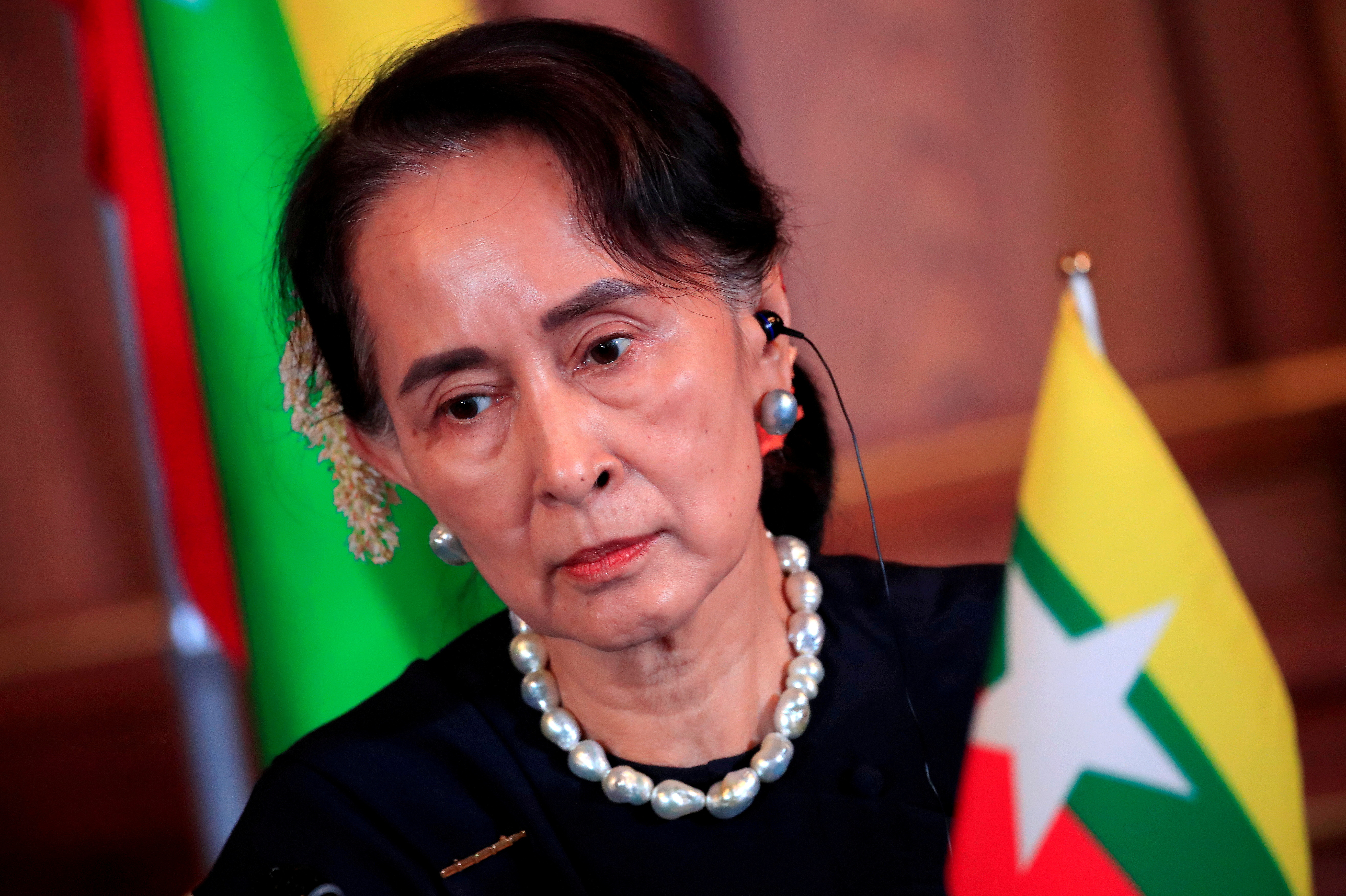Myanmar defies international pressure, rejects Suu Kyi visit

Myanmar's State Counsellor Aung San Suu Kyi attends the joint news conference of the Japan-Mekong Summit Meeting at the Akasaka Palace State Guest House in Tokyo, Japan October 9, 2018. Franck Robichon/Pool via Reuters Purchase Licensing Rights
Nov 3 (Reuters) - Myanmar's ruling military on Wednesday stood by its decision to deny a Southeast Asian envoy access to detained former leader Aung San Suu Kyi, resisting growing international pressure to comply with a regional peace plan agreed in April.
Vice-Senior General Soe Win, the second in command of the junta that seized power from Suu Kyi's elected government in February, said allowing a foreigner access to someone charged with crimes was against domestic law.
"I believe no country will allow anyone to do beyond the existing law like this," he said in a speech published in state media.
His remarks follow last week's virtual Asian leader summits hosted by the Association of Southeast Asian Nations (ASEAN), which Myanmar did not attend, in protest at junta leader Min Aung Hlaing's exclusion for not honouring the peace deal.
It called that a breach of ASEAN's code of consensus and non-interference and refused to send junior representation.
Soe Win rejected the allegation of non-compliance and said the April agreement with ASEAN had been contingent on it considering Myanmar's "current internal affairs", with the envoy's access to the country "based on internal stability".
Soe Win's rebuttal was delivered at a virtual meeting on Tuesday of ASEAN auditors.
He said demands on Myanmar made at last week's Asian summits were "found to be suspicious of violating the images of ASEAN's solidarity".
Myanmar has been paralysed by protests, strikes and violence since the coup, with the junta struggling to govern and facing armed resistance from militias and ethnic minority rebels allied with a shadow government that it calls "terrorists".
More than 1,200 civilians have been killed by security forces, according to a local monitoring group cited by the United Nations, which the junta has accused of bias.
Sign up here.
Reporting by Reuters Staff; Writing by Martin Petty; Editing by Christopher Cushing and Sanjeev Miglani
Our Standards: The Thomson Reuters Trust Principles.
